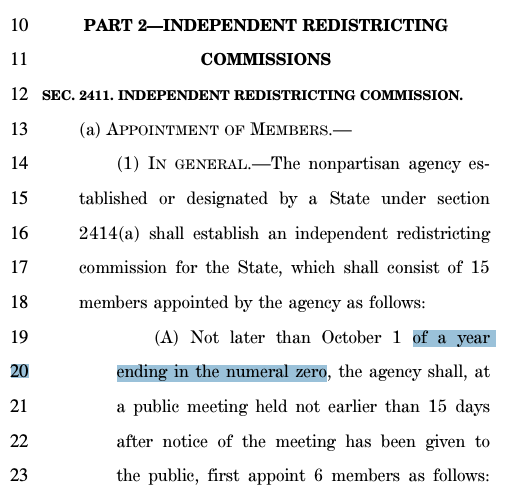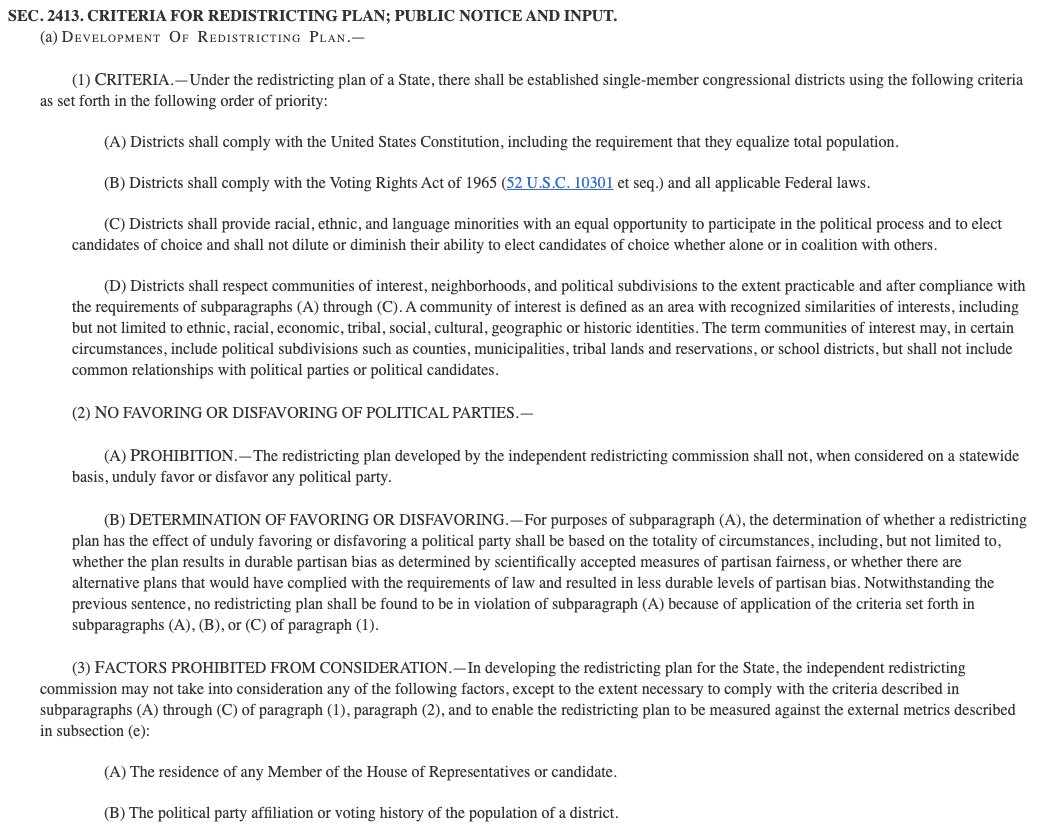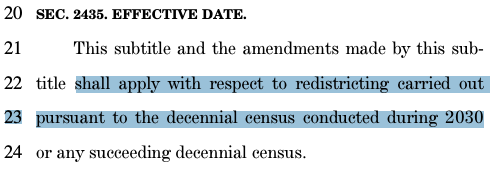
Last week @TravisCrumLaw & @ProfNickStephan wrote two great summaries of #HR4 *as introduced* on @ElectionLawBlog. This week, the House passed HR4... but not before a few final tweaks, one of which is really worth highlighting: *retroactive* retrogression liability under § 2. /1
The John R. Lewis Voting Rights Advancement Act moved swiftly from introduction to passage, but there was one set of amendments agreed to at the last minute that can be found in House Report 117-117. /2
congress.gov/congressional-…
congress.gov/congressional-…
Among these is a change to the new provision allowing voters to bring retrogression challenges. This now covers laws enacted "on or after January 1, 2021" (i.e., all of the restrictive laws enacted at the state level over the past half year). Below is the before/after. /3 



This could be, to quote the President, a BFD. A lot of comparisons between HR1 & HR4 point out that HR4 would only apply prospectively (see, e.g., below).
nymag.com/intelligencer/…
This amendment changes that and makes the bill far more effective. /4
nymag.com/intelligencer/…
This amendment changes that and makes the bill far more effective. /4
Consider the GA litigation over SB 202. Not only would plaintiffs' existing "results test" claims under § 2 be stronger (bc of the VRAA's Brnovich rollback), but plaintiffs could amend their complaints to add new claims saying SB 202 changed the status quo for the worse. /5
Of course, the #VRAA (like #ForThePeopleAct) faces a steep climb in the Senate due to the filibuster ( ::cough end or reform it see below cough:: ). But if any version of the VRAA is going to pass, retroactivity is a great piece to include. /6
thehill.com/opinion/campai…
thehill.com/opinion/campai…
PS – And if you haven't read the write-ups on HR4 from @TravisCrumLaw or @ProfNickStephan yet, you should!
Crum: electionlawblog.org/?p=124147
Stephanopoulos: electionlawblog.org/?p=124164
Crum: electionlawblog.org/?p=124147
Stephanopoulos: electionlawblog.org/?p=124164
• • •
Missing some Tweet in this thread? You can try to
force a refresh






